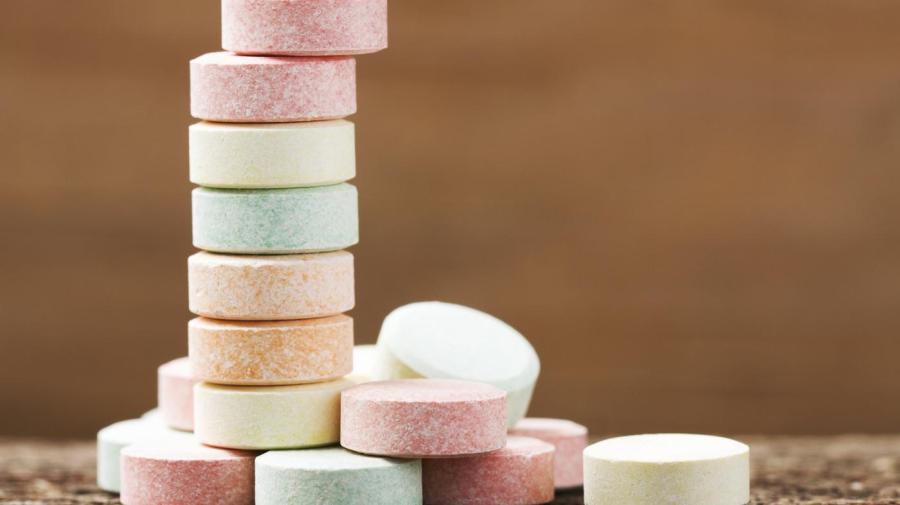How Does Calcium Carbonate Neutralize Stomach Acid?

Calcium carbonate neutralizes stomach acid, which is primarily hydrochloric acid, by reacting with it to form carbon dioxide, calcium chloride and water. As water forms, the number of free hydrogen ions in the stomach decreases, creating a less acidic environment. The digestive tract eliminates the carbon dioxide as a gas. The body stores calcium chloride in bones and teeth and eliminates any that it does not need.
Calcium carbonate is a common ingredient in over-the-counter antacids, such as TUMS. It is a chalky material that manufacturers form into tablets or prepare as a liquid suspension. With proper use, it decreases the pain of acid indigestion and heartburn.
Reduction of stomach acid helps to provide pain relief in patients suffering from stomach ulcers. Such ulcers do not have the acid-resistant lining of normal stomach tissue, and they are susceptible to burning pain from excess acid. While antacids bring pain relief, they do not help to cure the ulcer, which will continue to flare up.
Doctors warn patients against overuse of antacids. Increasing the pH of the stomach too much signals cells to excrete additional stomach acid to return the stomach to its normal range. The additional acid increases the pain one experiences.





